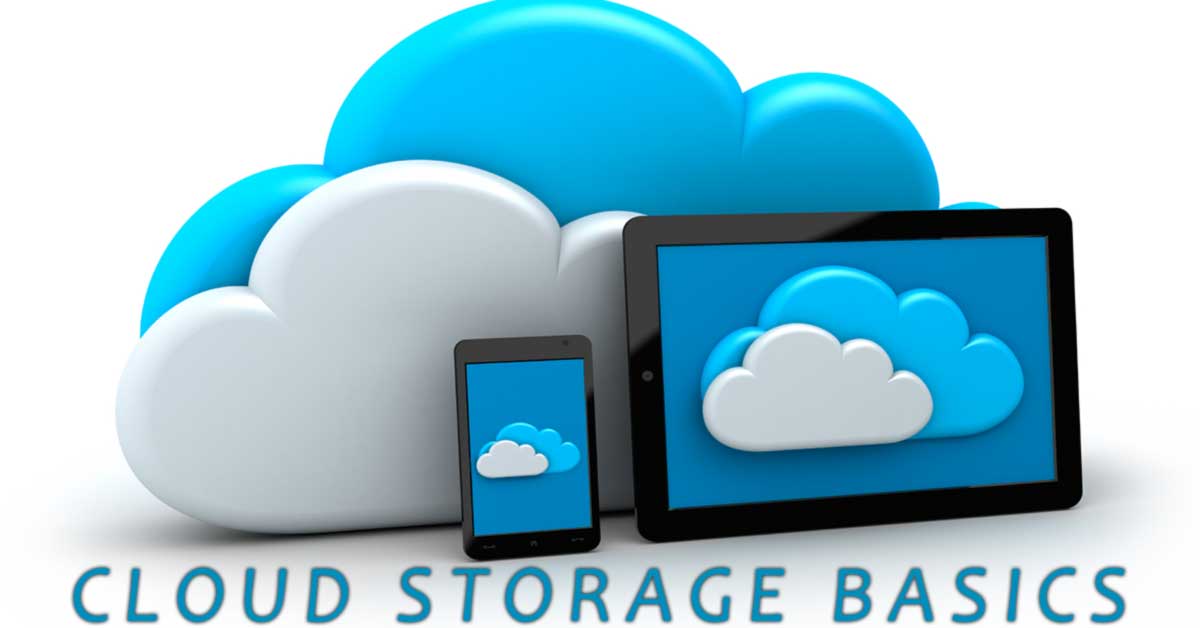The Ins and Outs of Cloud Storage
We have all heard the term “cloud storage” on numerous occasions. But, what is cloud storage, really? Cloud storage is a service that is provided where your data is maintained, managed and backed up remotely (not on your computer), only to be made available to you via a network which in most cases will likely be the internet.
Cloud Storage Advantages
Cloud storage is quickly becoming the preferred way to store data. There are a multitude of advantages for storing files remotely vs. locally for home as well as professional users. Following are ten reasons why you should give your external hard drive the boot and switch to cloud storage services.
- Cost – When you factor in the cost of the equipment (for example external hard drives or backup tapes) needed to back your data, it’s not always cheap to do so. Then factor in the cost of the time it takes to manually complete routine backups. Online storage services reduce many of the costs that are related with traditional backup methods, while providing a vast amount of storage space “in the cloud” for a monthly fee.
- Invisibility – There isn’t a physical presence with cloud storage and it doesn’t take up any space in your home or office. It’s basically invisible!
- Security – Storing confidential or sensitive information in the cloud is more secure, whether for business or personal use. Online storage services encrypt your data during transmission as well as when it’s at rest. This ensures that unauthorized users cannot access the data.
- Automation – Let’s face it. Consumers and business alike often times fail to back up their data due to the tedious process. Online storage services make this task easy to complete through automation. By selecting what and when you want to back up, the service will do the rest.
- Accessibility – We are using a multitude of devices on a daily basis, more so than ever before. Switching from devices such as tablets, smartphones, netbooks, and desktops make toggling files between each a burdensome and multifaceted process. When you use online storage, you can access your account using the internet on any device.
- Syncing –The latest version of your files is automatically updated across all devices when you sync your data.
- Sharing – You can easily share a single photo or a large folder with multiple documents with just a few clicks.
- Collaboration –Multiple people can edit and collaborate on documents using cloud services. No more worries about where the latest document version is.
- Protection – Backup files are kept in a secure location that is far removed from your originals when using cloud storage, adding an extra layer of protection for your irreplaceable files.
- Recovery – Should a huge data loss occur, you can access your original files and restore them with no downtime.
Cloud Storage Options
When considering a cloud storage option, there are essentially three different types to choose from. Each option has its advantage; you simply need to figure out what kind of storage system would work best for you and your situation. No matter what your storage needs may be, using a cloud storage service provides many benefits for your personal and professional files.
- Public Cloud Storage – services such as Amazon’s Simple Storage Service (S3) provides a storage environment for several occupants that’s most suitable for unstructured data.
- Private Cloud Storage – this is provided in a committed environment that is protected behind an organizations firewall. This kind of storage is appropriate for users who need customization and more control over their data.
- Hybrid Cloud Storage – a combination of the two previous models, this option includes at least one private cloud and one public cloud arrangement. Organizations may store data that is structured and used often in a private cloud, while storing unstructured and archival data in a public cloud setting.

